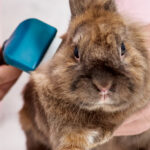Table of Contents
Dealing with pet jealousy can be challenging for pet owners, especially in multi-pet households. Jealous behavior can lead to tension and conflicts between pets. Understanding the causes and implementing effective strategies for dealing with pet jealousy is essential for maintaining harmony. In this article, we explore 10 strategies to help you manage and reduce jealousy among your pets.

Recognize the Signs of Pet Jealousy
The first step in dealing with pet jealousy is recognizing the signs. Jealous pets may exhibit behaviors such as aggression, clinginess, or destructive actions. Identifying these signs early can help you address the issue before it escalates. For more information, visit PetMD Jealousy in Dogs.
Maintain Routine and Structure
Pets thrive on routine and structure. Ensuring consistency in feeding, playtime, and bedtime can help reduce feelings of insecurity and jealousy. For tips on maintaining a routine, check out ASPCA Pet Routine.
Provide Individual Attention
One of the most effective ways to manage jealousy is by providing each pet with individual attention. Spend quality time with each pet daily to make them feel valued and secure. For more on giving individual attention, visit PetSmart Quality Time.
Ensure Equal Treatment
Pets can become jealous if they perceive that one is receiving more attention or resources than the other. Ensure equal treatment in terms of affection, treats, and playtime. For tips on equal treatment, see Vetstreet Tips for Multiple Pets.
Create Separate Spaces
Providing separate spaces for each pet can help reduce competition and jealousy. This includes separate feeding areas, beds, and toys. For more on creating separate spaces, visit The Spruce Pets Multi-Pet Tips.
Introduce New Pets Slowly
When introducing a new pet to the household, do so gradually to allow your existing pets to adjust. Start with short, supervised interactions and gradually increase the time they spend together. For introduction tips, check Humane Society Pet Introduction.
Use Positive Reinforcement
Encourage good behavior by using positive reinforcement techniques such as treats, praise, and petting. Reward your pets when they interact calmly and peacefully with each other. For more on positive reinforcement, see AKC Positive Reinforcement.
Avoid Favoritism
Favoritism can exacerbate jealousy among pets. Be mindful of your actions and ensure that you are not inadvertently favoring one pet over the other. For tips on avoiding favoritism, visit PetMD Curbing Jealousy.
Provide Mental and Physical Stimulation
Boredom can contribute to jealousy and behavioral issues. Ensure your pets have plenty of mental and physical stimulation through toys, games, and exercise. For ideas on keeping pets stimulated, check Petfinder Mental Exercise.
Consult a Professional
If jealousy persists despite your efforts, consider consulting a professional pet behaviorist or trainer. They can provide tailored advice and strategies to manage and reduce jealousy. For more on professional help, see APDT Find a Trainer.
Conclusion
Dealing with pet jealousy requires patience, consistency, and understanding. By recognizing the signs of jealousy, maintaining routine, providing individual attention, and using positive reinforcement, you can create a harmonious environment for all your pets. For more tips on pet care and behavior, check out our Pet Behavior Guide.
FAQs on Dealing with Pet Jealousy
What are common signs of pet jealousy?
Common signs include aggression, clinginess, destructive behavior, and changes in eating or sleeping habits. Recognizing these signs early can help you address the issue promptly.
How can I prevent jealousy when introducing a new pet?
Introduce the new pet gradually, provide separate spaces, and ensure equal attention and resources for all pets. Supervise interactions and reward calm behavior.
Is it possible to eliminate pet jealousy completely?
While it may be difficult to eliminate jealousy entirely, consistent efforts in providing equal attention, maintaining routine, and using positive reinforcement can significantly reduce it.
Can professional help make a difference in managing pet jealousy?
Yes, consulting a professional pet behaviorist or trainer can provide tailored advice and effective strategies to manage and reduce jealousy.
How important is routine in preventing pet jealousy?
Routine is crucial as it provides a sense of security and stability for pets. Maintaining consistent feeding, playtime, and bedtime schedules can help reduce jealousy.
Can jealousy among pets lead to health issues?
Yes, prolonged stress and anxiety due to jealousy can lead to health issues such as digestive problems, loss of appetite, and behavioral disorders. Addressing jealousy promptly is important for overall health.











